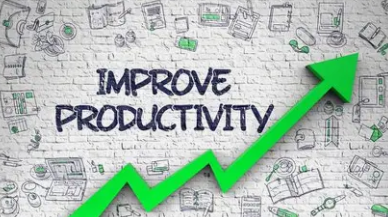Sometimes, people believe that to be more productive, they need to overhaul their entire lives — wake up at 5 a.m., change jobs, learn ten new tools, or suddenly become a morning person. But the truth, as countless high performers quietly know, is much simpler: big transformations begin with small adjustments. Tiny daily habits, practiced consistently, can reshape how we think, work, and feel. The science of productivity isn’t about grand gestures; it’s about compound moments — little, almost invisible shifts that build momentum faster than we realize.
If you look at some of the world’s most effective people, you’ll notice that their routines are rarely glamorous. They don’t spend all day chasing optimization; they design subtle systems that remove friction. James Clear, author of Atomic Habits, often says that “you do not rise to the level of your goals; you fall to the level of your systems.” That insight captures the spirit of what makes small daily changes powerful: they create a foundation that supports productivity naturally, without relying on bursts of motivation.

Take the example of Claire, a graphic designer based in Berlin. For years, she struggled to manage her workload. She read every productivity book she could find, installed five different task management apps, and even tried rigid scheduling systems that promised to transform her focus. None of them stuck. Then, one day, she decided to make just one change — she would start her mornings without her phone. Instead of scrolling through messages, she spent ten minutes journaling and listing the three most important things she needed to accomplish that day. That tiny ritual reshaped her entire work rhythm. By the third week, she realized she was finishing projects ahead of schedule. The secret wasn’t a new system; it was a new signal to her brain that said, “This time matters.”
Modern psychology explains why this works. The brain loves cues — small reminders that trigger specific behaviors. When we attach small changes to existing habits, they become sustainable. Drinking a glass of water right after brushing your teeth, stretching before opening your laptop, or planning tomorrow’s tasks just before shutting down for the evening — these cues anchor your behavior. Over time, they automate success. You no longer think about being productive; you simply are.
Small daily changes also fight against one of the biggest productivity killers: decision fatigue. Every day, our brains process thousands of tiny choices, from what to wear to how to reply to an email. By creating micro-habits that reduce these choices, we conserve mental energy for what really matters. That’s why people like Steve Jobs and Mark Zuckerberg famously wore the same type of outfit every day — not as a fashion statement, but as a form of cognitive efficiency. They understood that saving mental energy on small things gives you more focus for big things.
For most of us, this principle can start small. Preparing your outfit the night before, pre-planning your lunch for the week, or setting up a recurring to-do list template might seem trivial, but they reduce mental clutter. Each decision you automate is a drop of energy saved — and productivity, in many ways, is a story of energy management more than time management.
One of the simplest yet most transformative small changes is learning to protect your first hour of the day. Many high performers treat the early part of the morning as sacred — not because they’re naturally morning people, but because that’s when the mind is freshest. Starting your day with intention creates a ripple effect that lasts for hours. Even if you only dedicate the first 15 minutes to something grounding — journaling, reading, or walking — it sets a tone of control. Neuroscientists call this a “keystone habit,” something small that positively influences multiple other behaviors. When you begin with purpose, you make better choices later almost automatically.
Another underrated micro-shift is breaking large goals into “micro-tasks.” Productivity often collapses under the weight of vague ambition — “finish the presentation,” “write the report,” “launch the campaign.” These phrases are too abstract for the brain to process efficiently. But when you reframe them into clear, actionable steps — “outline three main points,” “draft introduction paragraph,” “email John for feedback” — you create immediate momentum. Each completion gives a dopamine reward that encourages continuation. Psychologists call this the “progress principle”: small wins build motivation, while big, undefined goals create paralysis.
Technology can help, but it’s important to use it intentionally. Too many apps promise productivity but end up adding noise. Instead of trying every new tool, pick one that simplifies your workflow. For instance, a freelance writer might use Notion to store all ideas in one place, or Todoist to quickly capture tasks on the go. What matters is not how advanced the tool is, but how naturally it fits your rhythm. The best tech quietly disappears into the background, supporting you without demanding attention. The more seamless it feels, the more sustainable your habits become.
There’s a psychological magic in consistency, especially when paired with tiny, predictable rewards. Behavioral scientists have shown that the brain thrives on positive reinforcement. Something as small as checking off a task on a list releases dopamine. That’s why even successful CEOs still write to-do lists — not because they forget what to do, but because completing items feels good. The physical act of finishing creates a feedback loop of satisfaction that fuels future action. A small daily list, limited to three achievable goals, often works better than a massive backlog of tasks you’ll never complete.
Another surprisingly powerful shift comes from how we frame breaks. Most people think productivity is about constant motion — squeezing every second out of the day. But true high performers understand that rest is part of the system, not a break from it. Short, structured breaks help the mind reset. For example, the Pomodoro Technique, which alternates 25 minutes of work with 5 minutes of rest, capitalizes on the brain’s natural attention span. Even a 2-minute walk or a quick breathing exercise between meetings can prevent fatigue and improve long-term efficiency. The key isn’t how long you work, but how often you allow recovery.

Small daily changes also extend beyond work habits — they influence environment. Your surroundings shape behavior more than motivation ever could. A cluttered desk breeds distraction, while a tidy space signals clarity. A study by Princeton University found that visual clutter limits the brain’s ability to process information, reducing focus. So when people like Marie Kondo encourage minimalism, they’re not just talking about aesthetics; they’re talking about cognitive performance. Spending two minutes at the end of each day to reset your workspace can make the next morning exponentially more productive.
Equally important is how we talk to ourselves. Productivity often collapses under internal pressure — guilt, self-criticism, or the myth of perfection. A small but life-changing habit is practicing self-compassion. When you miss a goal or have a slow day, replacing “I failed” with “I’m learning” rewires your mindset. Harvard research shows that self-compassionate people recover faster from setbacks and maintain higher motivation levels over time. Productivity thrives not in rigidity, but in psychological safety. You work better when you’re not constantly judging yourself.
Sleep, often ignored, may be the most powerful productivity habit of all. You can’t out-hustle biology. Studies consistently show that losing even one hour of sleep reduces cognitive performance, memory, and decision-making. Yet the solution doesn’t require an overhaul — small, consistent adjustments make the difference. Setting a consistent bedtime, dimming screens an hour before sleep, or using gentle wake-up lights instead of alarms all improve rest quality. The payoff is enormous: sharper focus, better mood, and higher sustained energy throughout the day.
Nutrition and movement play similar roles. You don’t need to start training for a marathon or follow a strict diet; you just need to integrate micro-habits that energize you. Stand up once an hour. Stretch your shoulders. Swap an afternoon coffee for a glass of water. Eat a protein-rich breakfast instead of skipping it. These decisions seem insignificant, but they shape your physiology — and your productivity is built on your biology. The brain consumes about 20% of the body’s energy, so how you fuel yourself literally determines how well you think.
One of the most elegant examples of small changes producing massive results comes from the British cycling team under coach Dave Brailsford. When he took over, the team was mediocre at best. Instead of pursuing sweeping reforms, he focused on what he called “the aggregation of marginal gains” — improving everything by just 1%. He upgraded pillows for better sleep, refined bike positions for comfort, and even redesigned handwashing techniques to reduce illness. Within five years, British cyclists dominated the Olympics and the Tour de France. That’s the hidden genius of small daily improvements: they stack up quietly until the world calls it genius.
In our digital age, the temptation to seek quick hacks is endless, but the most effective people in 2025 are turning back to fundamentals. They know that the speed of modern life doesn’t require more effort — it requires more intention. A minute of planning saves an hour of rework. Five minutes of reflection turns experience into insight. Ten minutes of exercise improves cognitive function more than another cup of coffee ever could. The math of productivity is emotional, not mechanical: each small act compounds to create flow.
The morning routine of bestselling author and podcaster Jay Shetty is a perfect example. He begins with silence — no phone, no screen. Then gratitude journaling, a glass of water, a few stretches, and three intentions for the day. That’s it. Nothing fancy, no complicated systems. But that quiet sequence of actions centers him. He calls it “creating space before the noise.” It’s a ritual that transforms his state of mind, allowing him to approach work from calmness instead of chaos. His productivity doesn’t come from pushing harder, but from starting clearer.
The truth is, small daily changes succeed where massive resolutions fail because they bypass resistance. They’re too easy to reject. When you tell yourself to write for just ten minutes, exercise for five, or clean your inbox for three, your brain says, “Sure, I can do that.” Once you start, momentum builds naturally. Psychologists call this the “activation threshold” — the hardest part of any task is beginning. By lowering that barrier, small habits trick your brain into motion. Action breeds clarity, and clarity breeds progress.
The beauty of this approach is that it adapts to anyone. You don’t need to be a CEO or a monk to benefit. Whether you’re a student, freelancer, parent, or manager, the principle is the same: focus on what’s controllable today. Set micro-goals. Build rituals around them. Reflect, adjust, repeat. Over weeks and months, these moments merge into a rhythm that feels effortless. You stop chasing productivity and start living it.
As Claire, the designer, realized months after starting her no-phone mornings, productivity isn’t about speed or apps or even systems. It’s about attention. When you give attention to small things consistently, they shape big outcomes. “My mornings are still quiet,” she says, “but I feel like I get twice as much done by noon.” Her story isn’t unique — it’s universal.
Small daily changes don’t shout. They whisper. They nudge you toward better choices until those choices become identity. You don’t just act like a productive person; you become one. And once you understand that growth isn’t a revolution but a rhythm, you realize you already have what you need to change — your next minute.
The secret to boosting productivity fast isn’t hidden in some distant future or expensive technology. It’s in the small, almost invisible adjustments you make right now — the decision to start your day intentionally, to take a break before you’re exhausted, to end your evening with gratitude. These are the quiet revolutions that transform ordinary days into extraordinary progress. The best part? You don’t need to wait for Monday or New Year’s Day to begin. You can start today, in the next breath, with one small, deliberate act.
And just like that, your life starts to change — fast, quietly, and for good.



